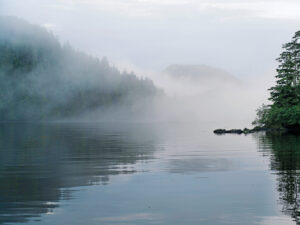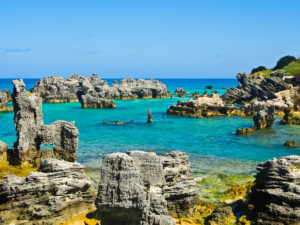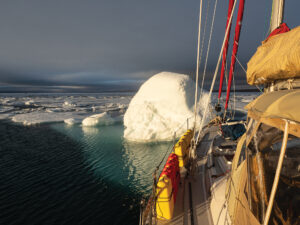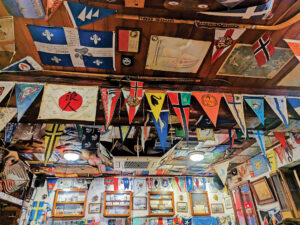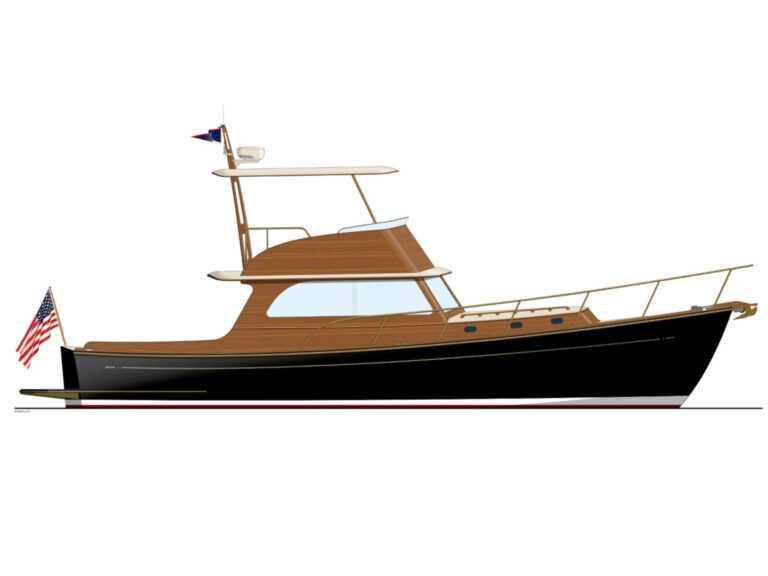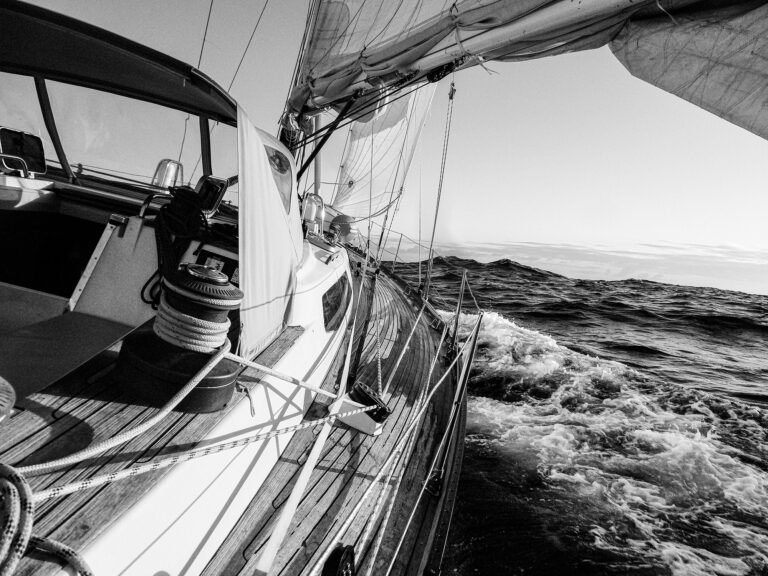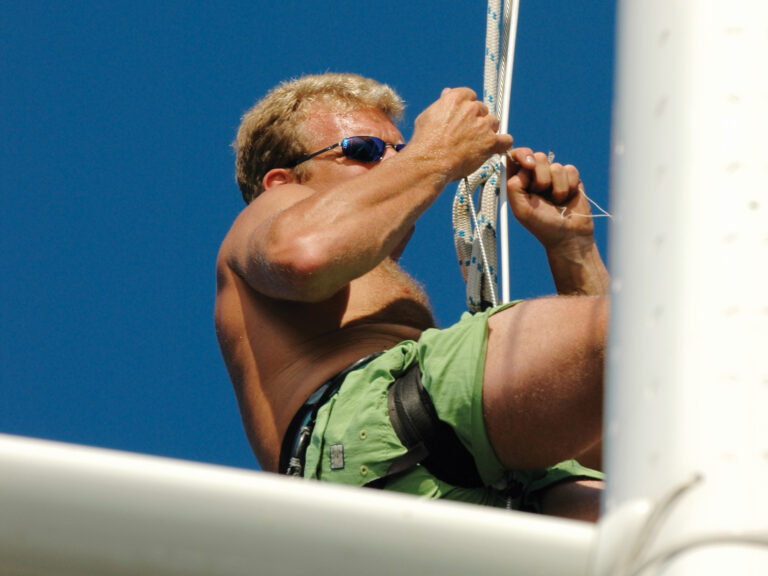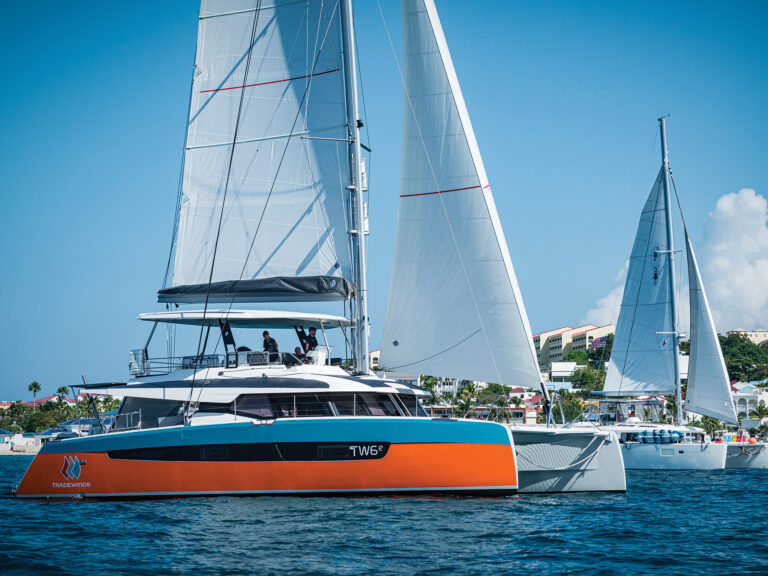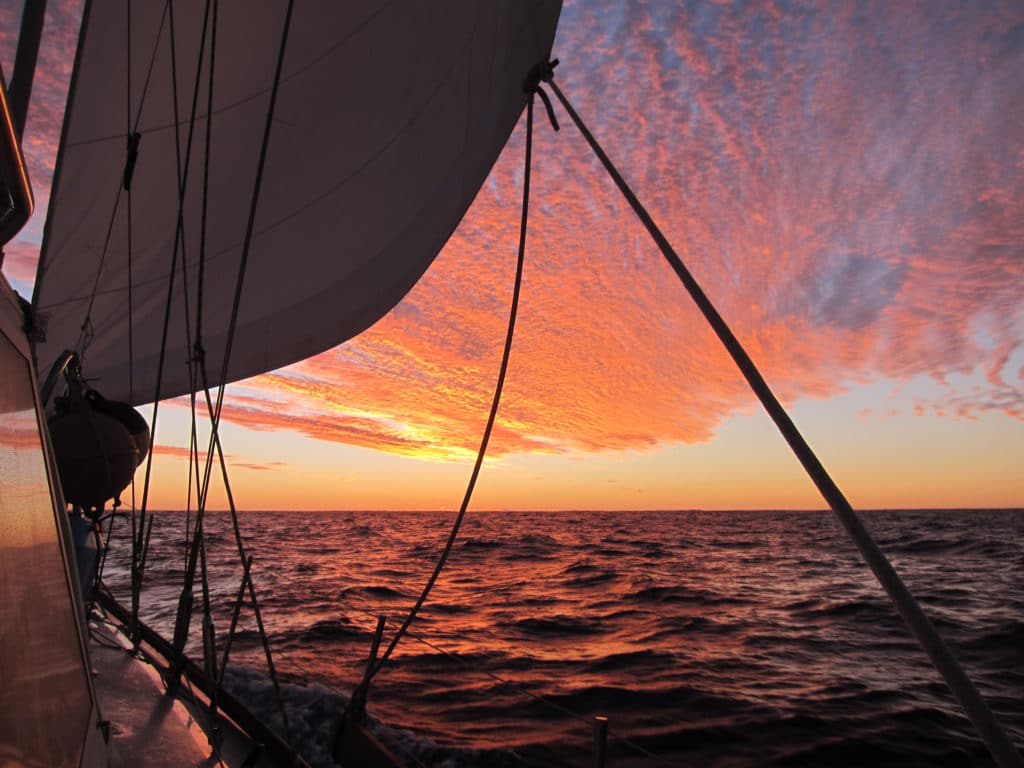
We left South Georgia, and it wasn’t the perfect time to leave, but we knew that there wouldn’t be a perfect time.
At 54 degrees south, below the Antarctic Convergence in the Southern Ocean, South Georgia is a miracle of Antarctic wildlife and unforgettable scenery. Our family — myself and my wife, Alisa, and sons, Elias and Eric — had spent a miraculous month there.
We had reveled in that remote place, but now it was time to pay the price for venturing so far afield. We were starting the passage onward to South Africa: 3,000 miles of sailing through southern waters that are the native home of gales and icebergs, not of family cruising boats.
On the day we left, winds were tumbling off the mountains, and williwaws were raising great sheets of spray off the bays. A gale had just passed. Rather than waiting another day for the weather to settle down, we elected to get going so as to be as far north as possible when the next gale inevitably caught us. Once again, we were entering that different realm that is an inescapable part of the sailing life. For the umpteenth time in our nine years of full-time sailing, we were going on passage. As we came out of the lee of the island, the Southern Ocean swell began to sweep down on us, wave after wave lifting us up as it sped by. Galactic was knocking along with three reefs in the main and a scrap of jib. Elias is the only one of the family to be blessed with a cast-iron stomach, and the rest of us were immediately fighting off seasickness with various degrees of success. That night we hove-to, partly out of concern over hitting an iceberg in the dark, but largely because neither Alisa nor I were really fit to stand watch.
In the days that followed, it felt like we were being forced to take on a new mode of living. Alisa referred to it as “the animal state.” The niceties went by the wayside. Our meals became crude affairs, put together by a heroic cook who lost her ability to partake through the act of creating. Or meals were abandoned completely and replaced by repasts of saltine crackers washed down with juice. The stern cabin, normally the adults’ private refuge, became the gear locker, strewn with everyone’s manky rain gear and boots. Anyone not actively engaged in some job critical to boat or crew retreated to their bunk.
Although this crossing was an extreme example, it was different only in degree from our more-routine passages. We realized long ago that if we waited for perfect weather to start a crossing, we would likely not leave at all. And so we have plenty of memories of voyages that began rough. I could fill a whole page with examples.
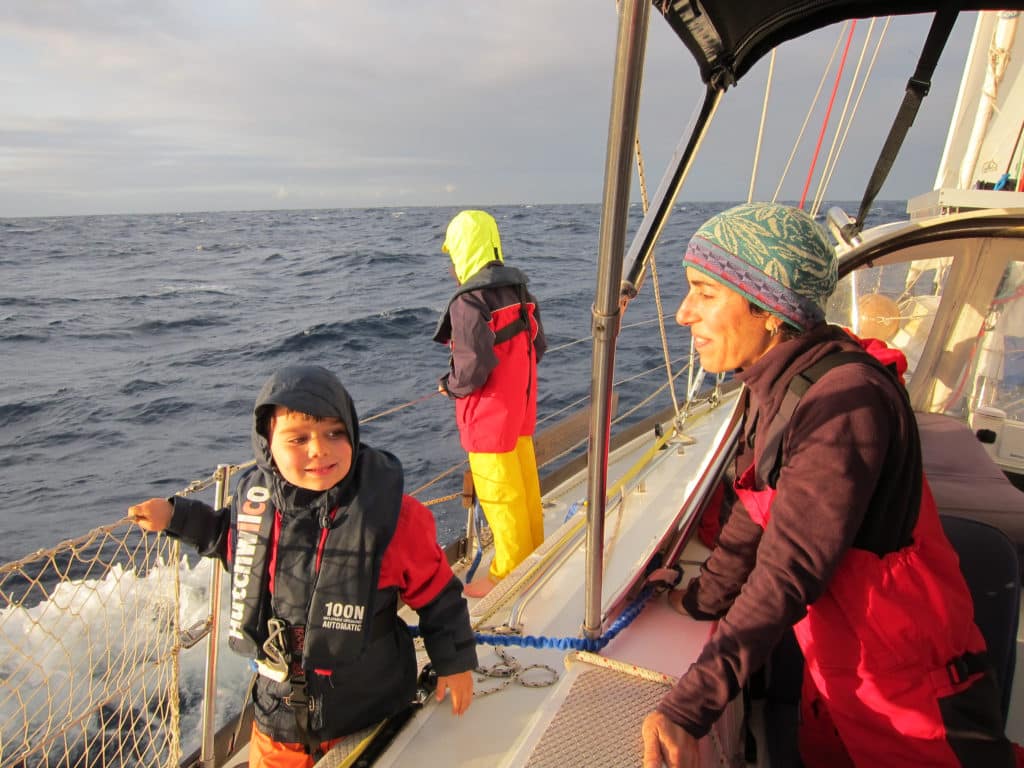
So, you might ask, if going to sea is regularly so onerous, why do we continue? Certainly there is a large proportion of cruisers who think of passagemaking with distaste. For many sailors, being at sea for weeks at a time is, at best, the price they have to pay to experience the delightful shore that awaits on the other side. For others, passages get to be so taxing and unenjoyable that they decide to give up sailing altogether.
But for all the rough starts we’ve had, I can’t subscribe to a negative view of passagemaking. Sooner or later things get better. You find your sea legs and the rhythm of the trip, and there it is — that thing that made Joseph Conrad talk about the true peace of God beginning at any spot a thousand miles from land. There is no joy I know as sharp and enduring as a good day at sea in the company of my family. It has something to do with the magic of a well-found cruising boat and how it can so effortlessly cross off the miles with a fair wind. It has something else to do with how, after all the years of dreaming and countless hours of work that got us out traveling the world in our own boat, the actual doing of the thing can be so effortless. And there is the final consideration that all the troubles of the world, all the petty annoyances and trivial concerns, are safely far away. Sooner or later on passage, perspective — proper perspective — becomes inescapable.
The best sorts of these moments undoubtedly come in the trade winds. There’s something about living in your bathing suit and tasting the salt on your lips as the warm breeze ruffles your hair, and then looking for the green flash at sunset, all with a dependable wind that can easily see you not touching the sheets for days at a time, that turns a passage into something exalted. And at the same time, there is none of the moral sloth that comes from sitting in a tropical port, oversated with the easy pleasures of the shore. Being on passage is being active. You are literally steering your own ship on your own course through life. Passagemaking is being alive. In the trades, we usually hit a point where none of us wants the voyage to end.
On the crossing to South Africa, the bliss wasn’t quite so obvious. Even when we weren’t actually sailing around icebergs or hove-to for gales, I felt the weight of responsibility over tackling such a big crossing with young kids. The crease in my brow never quite eased.
But there did come a morning when I was alone at dawn at the end of a long night watch, the family still asleep below. The boat was sailing well, and I had nothing to do but listen to the endless splashing of our bow wave as I contemplated the world from the deck of our little ship. I realized that right at that moment, there was nothing more I wanted in life.
Then Elias came up in his harness and rain gear and went to the bow to help me watch for ice, and that particular feeling of peace did not at all go away for the fact that I was sharing it with him.

